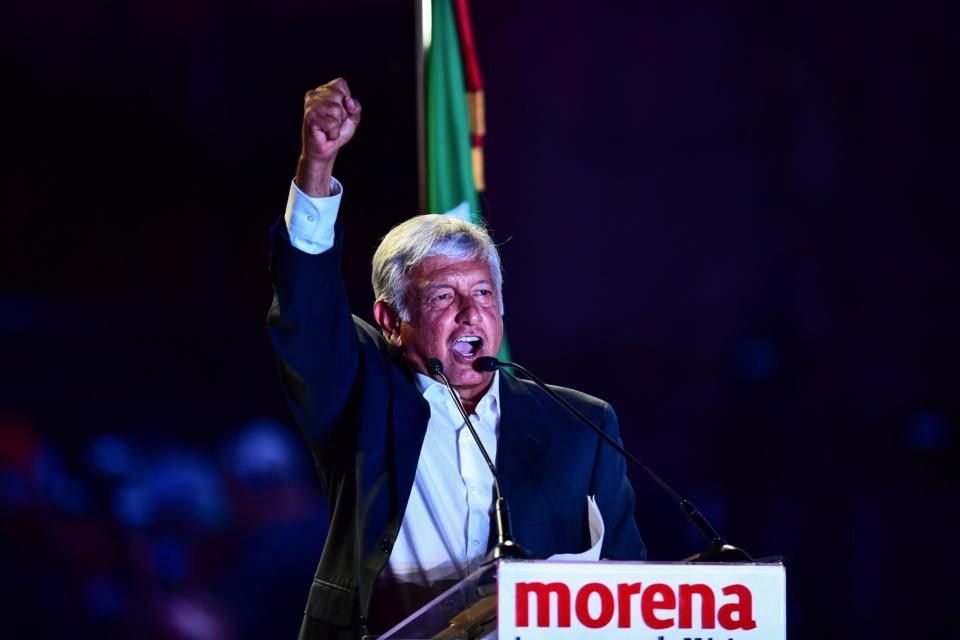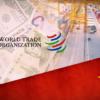Voters in Mexico are gearing up to choose their next president on Sunday. CGTN’s Alasdair Baverstock looks at the political journey of front-runner Andres Manuel Lopez Obrador.
Ahead of Mexico’s July 1 presidential election, one candidate appears poised for victory. His name is Andres Manuel Lopez Obrador, but he’s better known by the acronym of his initials: ‘AMLO’.
He’s a left-wing populist politician, championing the country’s marginalized, and currently seventeen-points ahead of his nearest rival in the polls.
“Lowering the salaries of the rich and raising those of the poor makes me the populist at the top of the list,” AMLO said.
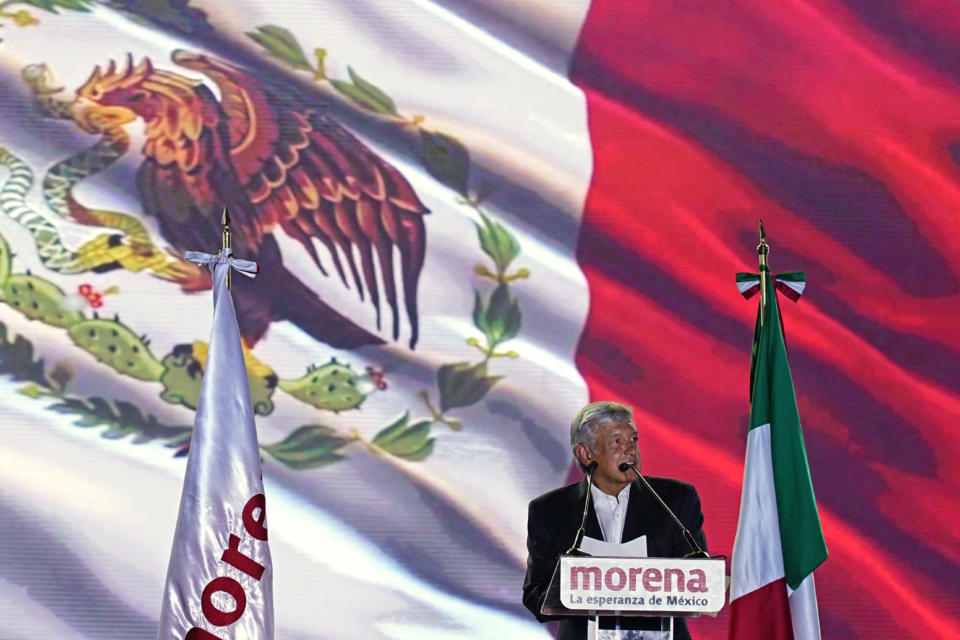
Presidential candidate Andres Manuel Lopez Obrador, of the MORENA party, holds his closing campaign rally at Azteca stadium in Mexico City, Wednesday, June 27, 2018. Mexico’s four presidential candidates are closing their campaigns before the country’s July 1 elections. (AP Photo/Ramon Espinosa)
AMLO hails from Mexico’s eastern state of Tabasco, where he began his political career as a member of Mexico’s current ruling party, the PRI (Institutional Revolutionary Party). He switched party alliance to the PRD (Party of the Democratic Revolution) before ascending to the position of mayor of Mexico City. In 2006, he campaigned for the presidency, but lost by less than 0.6-percent of the vote.
After losing the 2006 election, AMLO alleged electoral fraud. His supporters blocked a thoroughfare considered the beating heart Mexico City: the Paseo de la Reforma. It was blocked for a number of months in protest. Local leaders said it cost shops in the area millions of dollars in lost business.
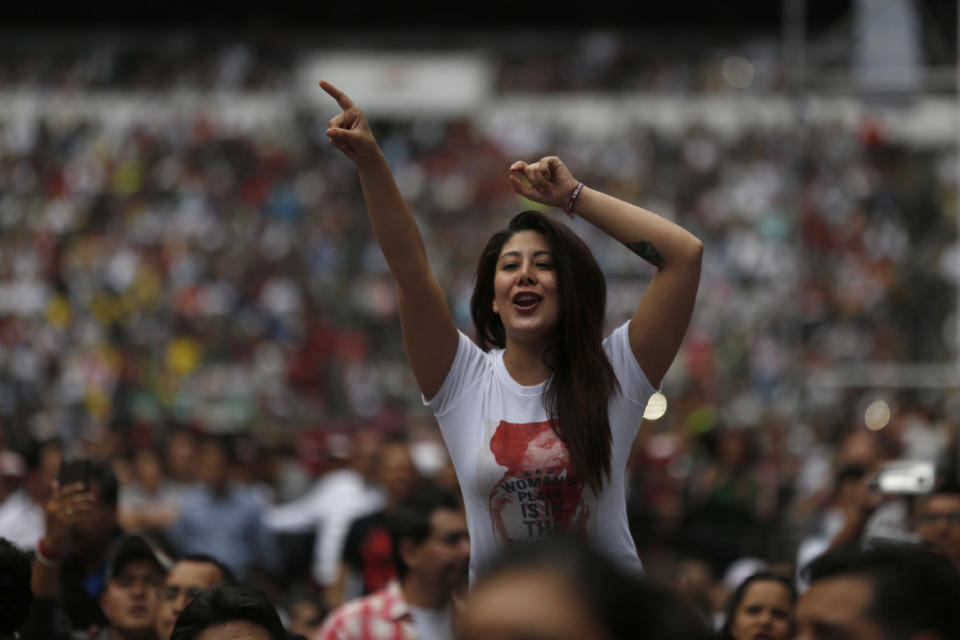
A supporter of presidential candidate Andres Manuel Lopez Obrador, of the MORENA party, attends his closing campaign rally at Azteca stadium in Mexico City, Wednesday, June 27, 2018. (AP Photo/Marco Ugarte)
In 2012, he ran and lost again. This time he was defeated by current president Enrique Pena Nieto. This is AMLO’s third shot at the country’s top job.
While Lopez Obrador is the clear front-runner this time around, the impact of an AMLO presidency on the country is less clear.
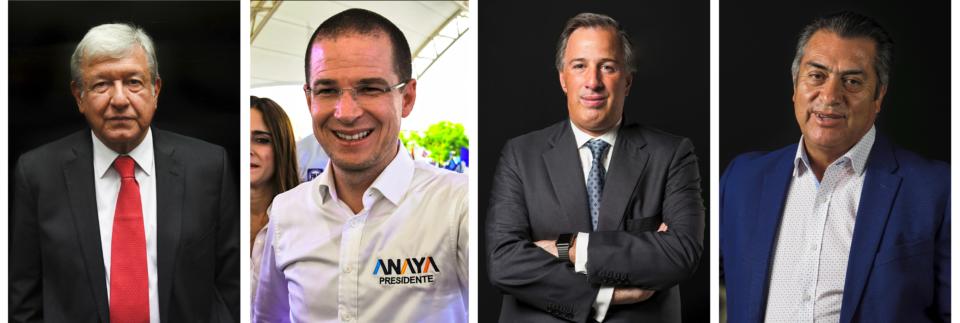
(L to R) Mexico’s presidential candidates Andres Manuel Lopez Obrador for the MORENA party, Ricardo Anaya for the “Mexico al Frente” Coalition, Jose Antonio Meade for Todos por Mexico, and independent candidate Jaime “The Bronco” Rodriguez Calderon are seen in undated file pictures from 2018.
Mexico will hold general elections next July 1. (AFP PHOTO)
“Andres Manuel represents the start of a change in Mexican politics,” Political Consultant Josue Escobedo said. “His election will mean that the public has accepted a different form of politics and wants to see change. We won’t see a huge difference, but rather his election will show that Mexico is ready for real political shake-up.”
If AMLO achieves his goal, observers wonder whether he would tone down the divisive rhetoric of his campaign. They also wonder what that might mean for the future of Mexico’s marginalized masses who would form the bedrock of his mandate.
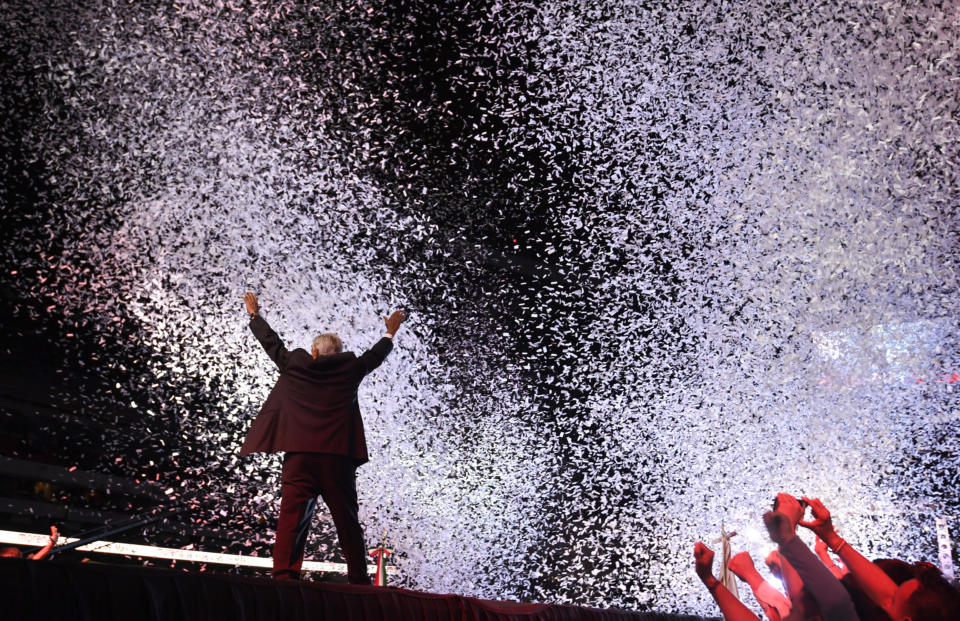
Mexico’s presidential candidate Andres Manuel Lopez Obrador, standing for the coalition “Juntos haremos historia”, waves to supporters during the closing rally of his campaign at the Azteca stadium in Mexico City, on June 27, 2018, ahead of the upcoming July 1 presidential election.
(AFP PHOTO / ALFREDO ESTRELLA)
 CGTN America
CGTN America
